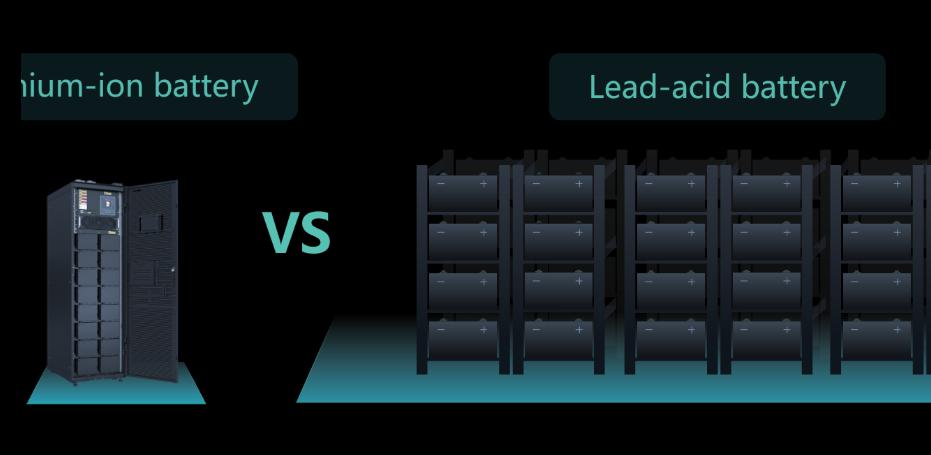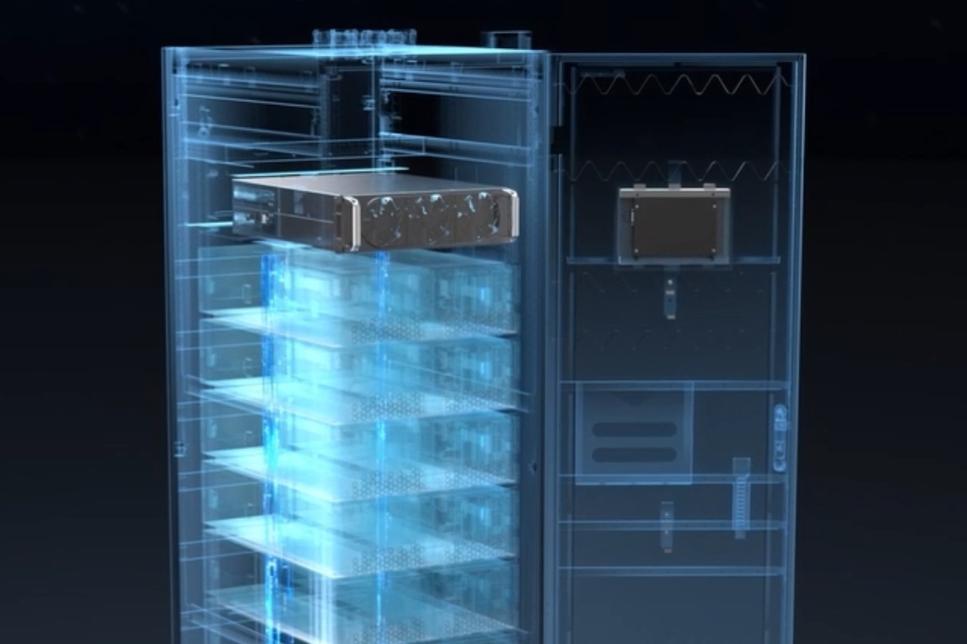Lithium Battery Uninterrupted Power Supplies (UPS) are transforming power protection, offering advancements urgently needed in today’s fast-paced, tech-reliant environments. This cutting-edge technology promises solutions that surpass traditional power systems, ensuring vital functions and data remain secure. Lithium Battery UPS is more than just a backup solution—it’s a forward-thinking approach that tackles the inefficiencies and environmental concerns associated with conventional power supplies. The adoption of Lithium battery UPS is not just a trend but a significant leap forward in achieving higher efficiency, cost-effectiveness, and sustainability in power protection.
The Advantages of Lithium Battery UPS for Power Protection
Extended Lifespan and Reduced Maintenance
One distinguished advantage of Lithium Battery UPS is their extended lifespan. Traditional lead-acid batteries generally require replacement every three to five years, while lithium batteries can last over a decade with proper maintenance. This long operational life significantly reduces the frequency and cost of replacements and maintenance, translating to fewer disruptions and lower operational overhead for businesses.

Higher Efficiency and Lower Energy Costs
Lithium Battery UPS systems offer superior efficiency. They can achieve charge and discharge cycles faster than their lead-acid counterparts, thereby minimizing energy waste. This high efficiency means businesses can reduce their electricity bills, making lithium batteries a cost-effective solution in the long run. Moreover, their ability to maintain a steady power supply reduces the risk of failures and the associated costs of system downtimes.
Environmental Benefits: Green Energy Solution
Environmental sustainability is a critical consideration in modern power solutions. Lithium batteries are considered more eco-friendly compared to lead-acid batteries. They offer higher energy density, which means they can store more energy in a smaller volume, reducing resources and space requirements. Furthermore, lithium batteries produce fewer toxic emissions and can be recycled more effectively, aligning with green energy standards and contributing to a reduction in the overall carbon footprint.
Why Lithium Battery UPS is Gaining Momentum in Various Industries
Adapting to the Digital Age: Data Centers and Critical Infrastructure
The digital transformation underway in several sectors has significantly increased the demand for reliable power supply solutions. Data centers and critical infrastructure, in particular, benefit immensely from Lithium Battery UPS due to their need for constant, stable power to avoid data loss and hardware failures. These systems ensure that even during power outages, operations can continue seamlessly without loss of data integrity.
Compatibility with Renewable Energy and Smart Grids
As industries shift towards renewable energy sources, the compatibility of Lithium Battery UPS with such energy solutions enhances their attractiveness. They integrate seamlessly with solar and wind energy systems, thereby ensuring a consistent power supply even when renewable sources fluctuate. Additionally, their compatibility with smart grids allows for more efficient power distribution and optimized energy use, supporting a more resilient and reliable power infrastructure.
Overcoming Challenges in Adopting Lithium Battery UPS
High Initial Costs and the Long-Term Payoff
A major barrier to adopting Lithium Battery UPS is the high initial costs. However, the long-term benefits far outweigh these upfront investments. Businesses save significantly on maintenance and energy costs over time due to the efficiency and longevity of lithium batteries. Financial incentives and technological advancements are expected to bring down these initial costs, making them more accessible.
Infrastructure Compatibility and Integration
Integrating lithium battery systems into existing power infrastructures can pose challenges, but solutions are available. Retrofitting facilities with lithium UPS may require significant changes in installation and management protocols. However, companies that have successfully integrated these systems report improved overall performance, proving the feasibility of overcoming these challenges with careful planning and execution.

Future Trends: What’s Next for Lithium Battery UPS in Power Protection?
Innovations on the Horizon: Better Efficiency and Sustainability
Future trends indicate that Lithium Battery UPS will continue to evolve, featuring greater efficiency and sustainability. Research in battery technology is continuous, with advancements aimed at enhancing energy storage capacities and reducing environmental impacts further. Innovations in materials and designs are expected to yield batteries that last even longer and perform better under a wider range of conditions.
Potential for Widespread Adoption in Homes and Businesses
The potential for widespread adoption of Lithium Battery UPS extends beyond commercial and industrial applications. As residential power needs grow and the desire for sustainable living increases, these systems are becoming more appealing to homeowners. The increasing availability of cost-effective options and scalable solutions will likely make Lithium Battery UPS a common fixture in homes, benefiting both consumers and the environment.
Conclusion
Lithium Battery UPS represents the future of power protection, offering significant advantages over traditional power systems. Their long lifespan, high efficiency, and environmental benefits position them as the superior choice in an era where reliable and sustainable power solutions are essential. While initial costs and integration challenges exist, the long-term benefits ensure a positive return on investment. As the technology continues to advance, the adoption of Lithium Battery UPS is set to become more widespread, ushering us into a new era of efficient, reliable, and environmentally responsible power protection.
